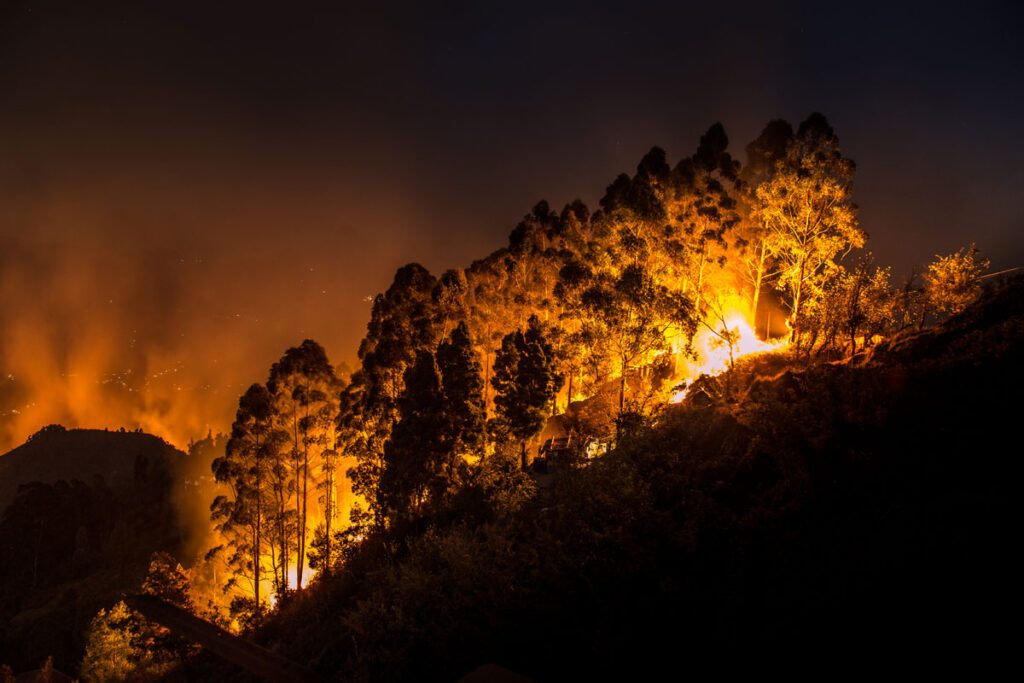Animal Welfare
Dealing with Fire
Bush fires raged in Australia in late 2019 and early 2020, burning an estimated 18.6 million hectares, destroying over 5,900 buildings, killing at least 34 people and half a billion animals1. At its peak, air quality dropped to hazardous levels in all southern and eastern states. In late 2020 wild fires ravaged the West Coast of America, with more than 5 million acres burned and more than 30 people killed2. Right now, Canada is experiencing devastating wildfires and is currently “on course for its worst-ever wildfire season on record.”3 Air quality is also being affected, with plumes of smoke blanketing the skies and creating thick sheets of haze across the country. In recent weeks, the plumes have been so bad that parts of the United States have felt its effects.
If these tragic events don’t demonstrate that climate change is real we’re not sure what does. Action must be taken. But first, the immediate and pressing dangers of the threat and consequences of these fires must be faced by those living under its cloud.
Preparation is key
Right now, for those living in the affected areas of Canada and the USA, most are past the preparation stage and are in the ‘dealing with it’ stage. However, you can never be over prepared, particularly when you also have animals to take into consideration and there are many excellent articles online where you can access the information you need if you live in an area under threat, including how to prepare pets and large animals for wildfires and how to prepare your property and what you need to have to hand in case of emergency.
Dealing with the effects of fire
Our Medical Director – Thomas Farrington, MVB MRCVS VetMFHom – has much experience in dealing with the effects of fire. Although based in Ireland where wildfire tragedies are thankfully uncommon, fires can and still do have tragic outcomes, with house fires claiming the lives of far too many humans and their animals each year.
“I have unfortunately had experience of animals being burned for many reasons, including house fires. I remember one tragic house fire where all the dogs died. They followed their owner downstairs and went part way past the fire, but in a panic then went back upstairs to what was usually their safe space and were unable to be saved.
“In another house only one dog survived as she was small enough to escape through the cat flap. The others perished. The surviving dog was presented after the veterinary treatment for severe traumas that her conventional treatment had not helped. However, homeopathic medicines for her consequent anxiety did wonders to bring her back towards the dog she had been before the fire. So much so that the humans in the family came for treatment.
“it’s important to remember that smoke inhalation is a medical emergency for pets, as it is for humans, and needs veterinary attention. Factors that play a role in smoke inhalation include carbon monoxide, hydrogen cyanide (which is released when plastic and other synthetic materials burn), chemical irritants and also thermal injury, where the heat contained within smoke can lead to burns within the airways and lungs, triggering severe swelling and inflammation. There’s some great advice on the American Veterinary Medical Association website on how to protect your animals from the effects of wildfire smoke and following these steps will help to minimise both the short and long term damage to your animals.
“In my experience, trauma is an often overlooked consequence and stress and anxiety can severely affect both humans and animals affected by such tragic events. The stress of dealing with the immediate situation, coping with potential displacement and dealing with grief following loss of life, property and possessions. And it’s not just those are directly affected that can suffer. The indirect effects can be huge too, as relatives fear for loved ones that live in the path of a fire and children may start to anxious as they see their parents are worried. At these stressful times it’s never been more important to look after our mental as well as our physical health and sometimes a little extra support may be needed. My advice would be don’t be afraid to seek help and get the assistance you may need. We are all in this together and no one should face such tragedies alone.
“We hope these wildfires are put out permanently very soon and that all those living in affected areas stay safe.”
Tom
If you and your animals have been affected by the wildfires and have any specific questions regarding natural support for anxiety or the physical effects of exposure to smoke and fire, please do get in touch – we’re here to help.
- Wikipedia
- https://www.bbc.com/news/world-us-canada-54130785
- https://people.com/canada-wildfires-2023-everything-to-know-7509251




